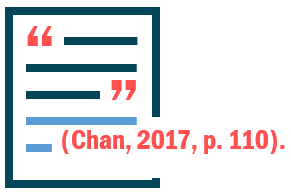| 2766-6863 | |
| 2766-6863 (service hours) | |
| Online Form | |
| Contact your Faculty Librarians on in-depth research questions |
Academic Integrity refers to the honest and ethical manner in which academic work is done, whether it is an assignment, an examination, an oral presentation, or a research project or report. Plagiarism is a key component in academic integrity.
Plagiarism is defined as using other people’s work and/or other sources without giving proper acknowledgement of the sources. Plagiarism also occurs when Generative AI output is used when it is explicitly disallowed in an assessment.
Citation is the key to avoiding plagiarism, but that doesn’t mean you can simply copy-paste from others’ works and/or other sources as long as you cite the source. To avoid plagiarism, here are two ways:
 |
Paraphrase + CiteParaphrasing means to rewrite the sentence from a source in your own words without changing the meaning of the sentence. You still need to cite the source properly. |
 |
Direct Quote + CiteQuoting, or direct quoting, means to copy the exact words of a sentence from a source. You need to put the copied words in quotation marks " " and cite the source properly. |
Watch the videos below to learn more about plagiarism, paraphrasing and quoting. Refer to Citation Guides by Subject to learn how to cite in your research discipline.
Source: ProQuest Research Companion